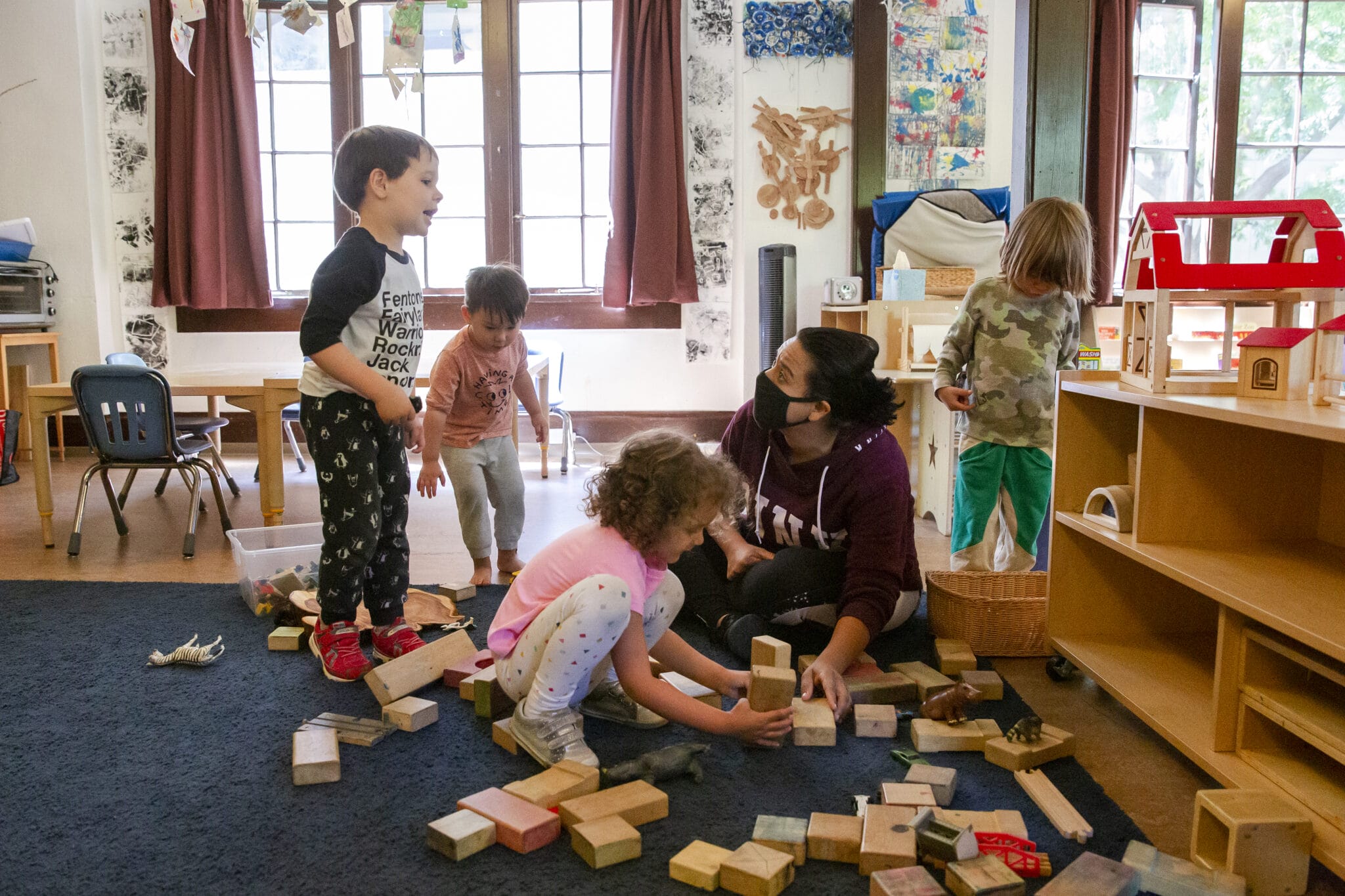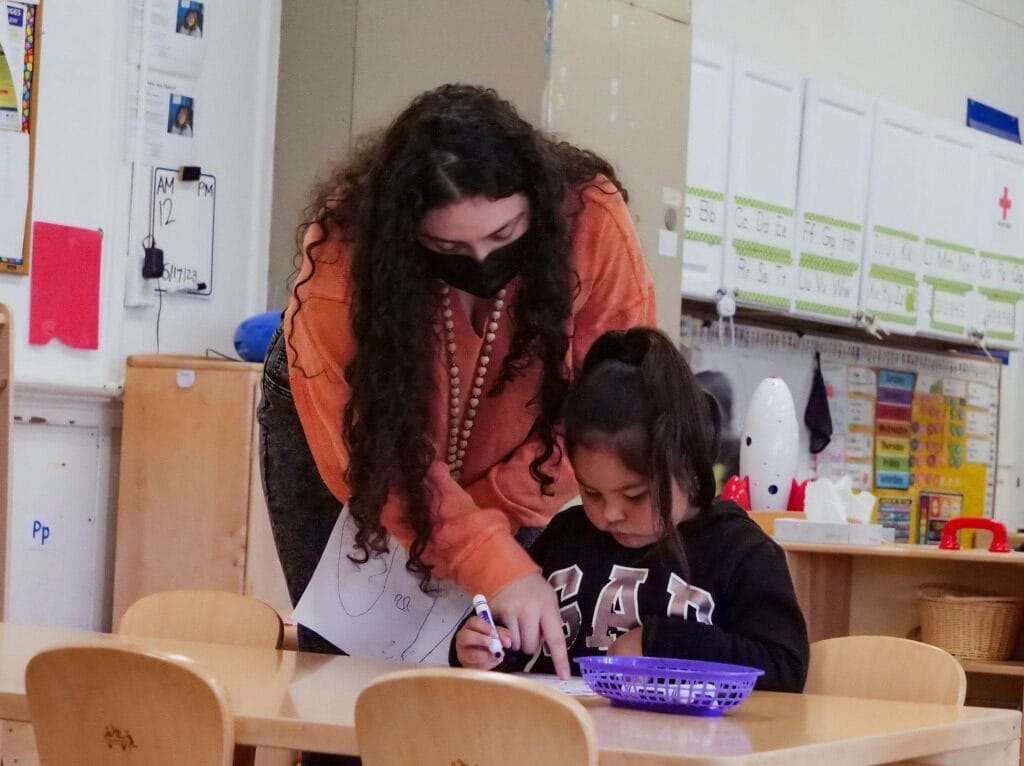In early 2022, the Center for the Study of Child Care Employment (CSCCE) at UC Berkeley surveyed nearly 1,000 center- and home-based early educators throughout Oregon about their experiences providing early care and education (ECE). For the first time, the study captured the voices of family child care (FCC) providers and their staff, providing valuable insights into this often-overlooked sector of the ECE workforce and also documented the experiences of early educators after the onset of the COVID-19 pandemic.
Significant findings were organized under five themes: Supported Staff Want to Stay; Training and Support; Multiple Languages, Multiple Experiences; Adult Well-Being; and the Strain on Family Child Care.
Supported Staff Want to Stay
Turnover and retention are long-standing issues in the ECE field, but the pandemic intensified these challenges. To recruit and maintain high-quality staff, programs must offer supportive working conditions for their early educators. To this end, we found that center-based teaching staff in Oregon with higher SEQUAL scores were more likely to indicate they would still be working at the same program in three years.
Training and Support
Training and support are other key factors in attracting and retaining a qualified workforce. Although many Oregon early educators participate in professional development, they reported insufficient training in several areas, including observation and assessment and communication with families. Many early educators reported a lack of options for sustained, long-term training or opportunities for peer-to-peer learning. Additionally, FCC providers and assistants reported that the available training was not always specific or relevant to family child care and, thus, did not often meet their needs and interests.
Multiple Languages, Multiple Experiences
Our findings indicate that multilingual educators in Oregon feel they have less agency in their program setting and that their input is undervalued. We also noted that the majority of our center director sample were White, monolingual (English-speaking) women, while about one third of the center-based teaching staff were Latina and/or other women of color who spoke multiple languages.1CSCCE is committed to eliminating oppressive language and using bias-free terms. Under this philosophy, for example, all terms used to describe race are capitalized, and gender-neutral terms are used when appropriate. Because the ECE workforce is overwhelmingly composed of women, we use the gender-specific term “Latina” to describe members of the ECE workforce who identify as part of the Latin American diaspora. At the same time, we gratefully acknowledge the participation of early educators who identify as men, non-binary or another gender identity. Examining policies and procedures to ensure equity in educator voices and diversity across all roles and settings is essential to supporting the workforce.
Adult Well-Being
“I love my job. However, it comes with no benefits and little pay. I am not sure how much longer I can continue in this field.”
— FCC Provider
Across center- and home-based programs in Oregon, early educators reported struggling to afford housing, health care, sufficient food, and other basic necessities for themselves and their families. Early educators also reported conditions that threaten their health and safety, most notably not being able to take breaks during the workday (although required by law to do so) or not being able to take their paid sick leave. These conditions, coupled with low pay, undermine early educators’ well-being and exacerbate stress and turnover.
The Strain on Family Child Care Providers
In Oregon, almost one quarter (23 percent) of early educators are family child care providers or assistants.2Oregon Center for Career Development in Childhood Care and Education (OCCD) & Oregon Child Care Research Partnership (OCCRP). (2021, May). Oregon early learning workforce: Seven years beyond baseline comparison of 2012 and 2019. Portland State University, Oregon State University. FCC providers fill a dual role of business owner and educator, providing care in their own homes. Few FCC providers are able to employ assistants to help them in their work. Shouldering this responsibility places a large economic and emotional strain on FCC providers; they worry not only about the economic security of their families but also of their businesses. Oregon has an opportunity to recognize and support family child care work through a variety of initiatives that we present in the report.
Conclusion
Through SEQUAL, early educators across Oregon identified features of their work environments that supported their practice and well-being, notably around support from supervisors for center-based teaching staff and FCC assistants and teamwork among early educators who work together. While educators’ responses also communicated features of the work environment that require improvement, the report highlights areas where Oregon is making strides for ECE professionals. For example, in the area of economic well-being of early educators, a recent initiative in Multnomah County will collect revenue from a local tax in order to raise the wages of early educators—not only for lead teachers in pre-K settings, but also assistant teachers and those working with younger children.3Multnomah County (2022, June 22). Preschool for All. https://www.multco.us/preschool Read Early Educator Voices: Oregon to learn more.
This study was commissioned by the Oregon Early Learning Division (ELD). For a full description of the project and its findings, please read the report Early Educators Voices: Oregon.
Suggested Citation
Schlieber, M. & Pufall Jones, E. (2023). Early Educator Work Environments: Educators in Oregon Share Their Experiences. Center for the Study of Child Care Employment, University of California, Berkeley. https://cscce.berkeley.edu/blog/early-educator-voices-oregon/



